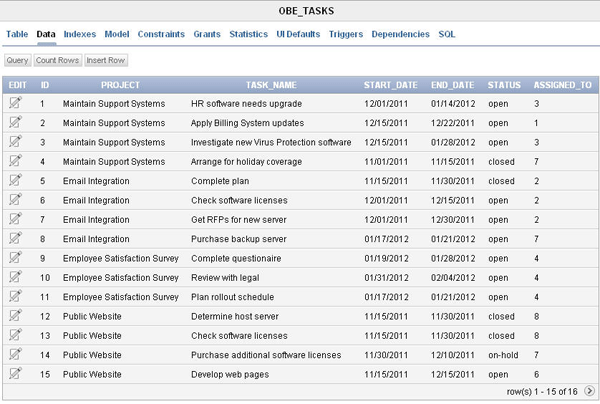

You can address this challenge via Oracle database replication, so a replica of your data is placed closer to the user.Ī common example of Oracle database replication can be found in money transfers and ATM withdrawals. That’s because you can fetch the relevant data from the location where the transaction is being executed.įor instance, users from Europe might face latency problems while trying to access Australian-based data centers. Maintaining multiple copies of the same data is convenient for minimizing data access latency. This allows system administrators to minimize processing cycles on the primary server and prioritize it for write operations. It’s a common practice in database replication to direct data read operations to a replica. Even if one of your machines is compromised due to a malware attack, faulty hardware, or another issue, your application data will remain available 24/7.

Since database replication copies data to several machines, it’s easier to maintain access to your application’s data. Some benefits of Oracle database replication include the following: These synchronized copies pave the way for distributed data processing, backups for disaster recovery, testing, and business reporting. With replication, businesses can synchronize data across different locations, share data with vendors and partners, and aggregate data from their branches - both international and local.Ĭompanies use Oracle database replication to create multiple copies of an organization’s database. Replicating an Oracle database makes it easy to distribute, share, and consolidate data. Simplify Oracle Database Replication with Striim Why Replicate an Oracle Database? Incremental Approach (Table Differencing).Since it allows real-time data access, database replication maintains high-data availability and addresses a major concern for enterprises. To achieve this, they can use database replication - a technique that enables data access to a wide range of sources (e.g., servers and sites). In today’s digital age, organizations must scale up their systems and build an ecosystem that helps them seamlessly access data from their Oracle database to improve the efficiency of their operations. Whether a business is looking to process millions of transactions or build a data warehouse, Oracle is the go-to option for handling critical enterprise workloads. That’s why it’s crucial to get 24/7 and real-time access to key business data from your database-and for many businesses, that database is Oracle. Modern computing demands have forced businesses to ensure high availability and data accessibility while tackling various networks simultaneously.


 0 kommentar(er)
0 kommentar(er)
